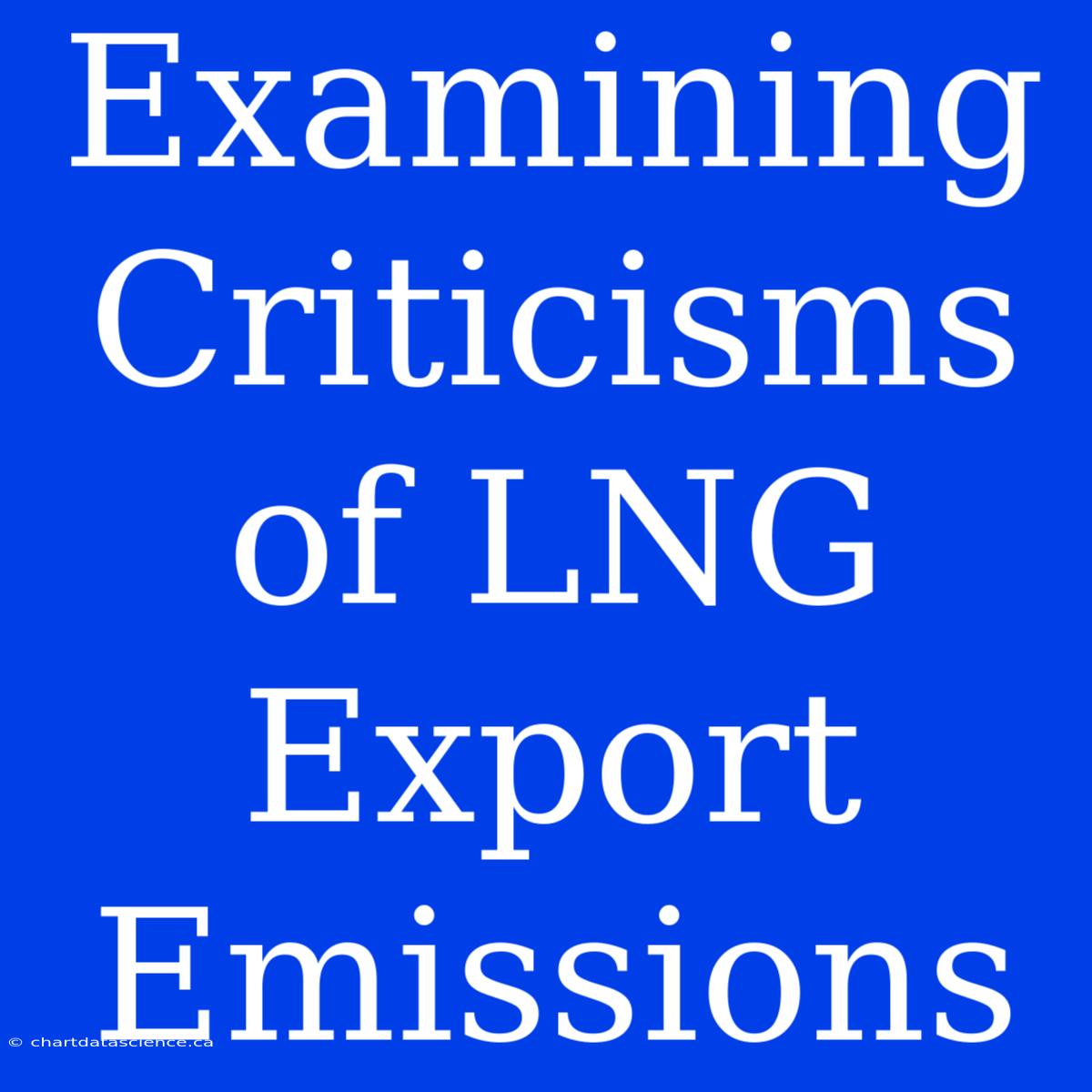Examining Criticisms of LNG Export Emissions: A Deeper Dive
The world is increasingly looking to liquefied natural gas (LNG) as a cleaner alternative to coal for power generation. But while it's true that LNG burns cleaner than coal, the process of extracting, transporting, and liquefying natural gas has its own set of environmental impacts, specifically when it comes to emissions. This article will explore the major criticisms of LNG export emissions, unpacking the complexities of this energy transition.
The Elephant in the Room: Methane Leaks
One of the biggest criticisms leveled at the LNG industry is the issue of methane leaks. Methane, the primary component of natural gas, is a potent greenhouse gas. When it escapes into the atmosphere, it traps heat far more effectively than carbon dioxide, contributing to climate change.
The problem? Methane leaks can occur at various stages of the LNG supply chain, from production and processing to transportation and storage. Even seemingly small leaks can have a significant impact.
Beyond Methane: Other Emission Concerns
While methane is the star of the show, it's not the only environmental concern related to LNG exports. The process of liquefying natural gas is energy-intensive, requiring large amounts of electricity. This electricity is often generated using fossil fuels, contributing to greenhouse gas emissions.
Additionally, LNG transportation by ship can release pollutants like sulfur dioxide and nitrogen oxides. These emissions contribute to air pollution and acid rain, impacting human health and ecosystems.
A Balancing Act: Weighing Benefits and Risks
The potential benefits of LNG, such as reducing reliance on coal and providing a cleaner energy source for developing countries, are undeniable. However, it's crucial to acknowledge the environmental costs associated with LNG production and transportation.
The Path Forward: A Call for Action
Addressing the concerns around LNG emissions requires a multi-pronged approach:
- Invest in Leak Detection and Repair Technologies: Improved leak detection and repair technologies are crucial for minimizing methane emissions. This includes the use of cutting-edge sensors, drones, and satellite monitoring.
- Promote Efficiency in the Supply Chain: Efforts to optimize the efficiency of the entire LNG supply chain, from production to transportation, can significantly reduce energy consumption and associated emissions.
- Transition to Renewable Energy Sources: As the energy transition progresses, relying more heavily on renewable energy sources to power the LNG liquefaction process is key to reducing reliance on fossil fuels.
- Focus on Environmental Regulations: Stringent environmental regulations and monitoring systems are essential to ensure the responsible production, transportation, and consumption of LNG.
The future of LNG hinges on mitigating its environmental impact. By taking concrete steps to address these criticisms, the LNG industry can play a more sustainable role in the energy transition. However, it's vital that we don't lose sight of the bigger picture: transitioning to truly clean and renewable energy sources is the ultimate goal for a sustainable future.

